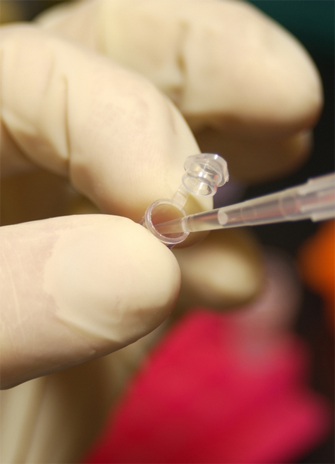
The Canadian Institutes of Health Research will provide almost $1.4 million in operating grants to two York University researchers
Emanuel Rosonina, assistant professor in the Department of Biology in the Faculty of Science, will receive $514,265 for his research on regulation of gene expression by protein sumoylation (SUMO). Many proteins involved in neurodegenerative disease are modified by SUMO, and abnormal modification by SUMO has been implicated in many types of cancer. This project will focus on identifying transcription-related proteins that are regulated by SUMO modifications in different conditions, elucidating the consequences of the SUMO modifications on the specific roles of transcription proteins, and the effects of these modifications on gene transcription/ expression as a whole. It is expected to help us understand how cells regulate gene expression during normal growth and in response to stress and disease.
Thilo Womelsdorf, associate professor in the Department of Biology in the Faculty of Science, will receive $882,060 for his research on how fast and flexible learning is achieved by the interplay of millions of brain cells that are in distinct parts of the brain and are not centrally controlled. The research will study cell activities in three areas of the brain that contribute to this flexibility in learning, and thereby help us adapt to new situations and make good choices. It will focus on the sequence of brain cell activities unfolding within and between three areas of the brain to better understand how weak linkages may causally relate to a number of psychiatric syndromes.
Minister of Health Rona Ambrose announced the funding in Calgary Wednesday. The grants will support the work of health research leaders across Canada who are advancing knowledge in many important areas of science and building the foundation for a healthier future for Canadians and a stronger healthcare system in Canada.
“Funding from The Canadian Institutes of Health Research is enabling researchers at York University to make important contributions to scientific knowledge that is vital for the health of Canadians,” said Robert Haché, vice-president research & innovation.
